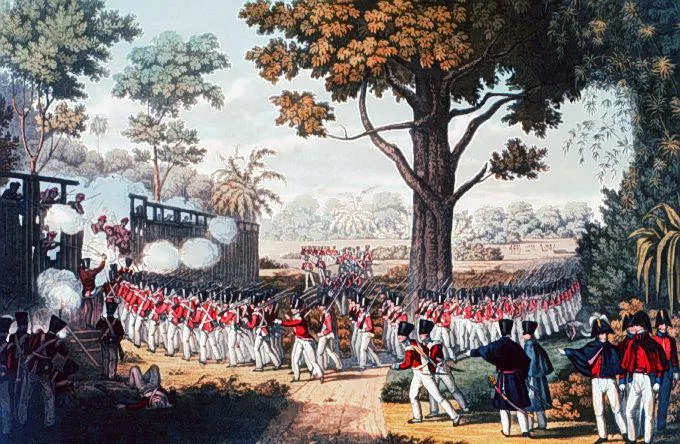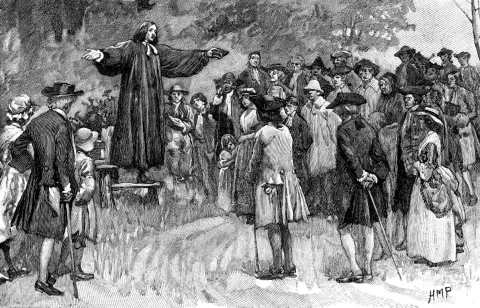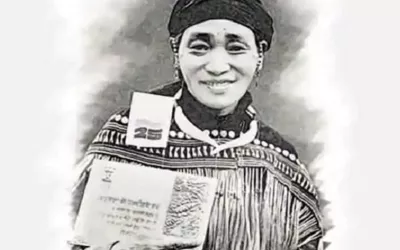The Treaty of Yandabo was signed on February 24, 1826, between the British East India Company and the Kingdom of Burma (also known as Myanmar). The treaty was signed following the First Anglo-Burmese War, which had begun in 1824, and marked the end of the war.
The Treaty of Yandabo between the British and Burma was primarily a political and economic agreement, and the role of the Church was not explicitly mentioned in the treaty. However, the spread of Christianity and the activities of Christian missionaries in Burma during the 19th century played a significant role in the country's history and its relationship with the British Empire.
Christian missionaries began arriving in Burma in the early 19th century, and their activities increased significantly following the First Anglo-Burmese War and the signing of the Treaty of Yandabo in 1826. The missionaries came from various denominations, including the Baptists, Methodists, and Anglicans, and they sought to spread their religious beliefs and values throughout the country.
One way in which the Church supported British Colonialism was through the establishment of Christian missions in the colonies. These missions often received support and funding from colonial authorities, and they played a role in promoting Christian values and culture among the colonized populations. Missionaries also sought to convert the local populations to Christianity to abolish their indigenous tradition and faith.
The missionaries established schools, hospitals, and other institutions that provided education, healthcare, and other services to the Burmese people and initiated the evangelism to convert them. They had invested major funds in the region to reach out to the people. These activities had a significant impact on Burmese society, and they contributed to the spread of Western ideas and Christian values. The missionaries also translated the Bible into Burmese language, and their work helped to create a written form of the Burmese language to spread the Christian values among Burmese people.
Church of England played a major role in supporting British Colonialism in African, Asian countries. Some prominent members of the Church of England, such as bishops and clergy, spoke out in support of British colonial policies and promoted the idea of British imperial superiority. The Church was deeply involved in the spread of Christianity throughout the British colonies.
The presence of Christian missionaries also had political implications. The presence of Christian missionaries in Burma and their activities were often viewed with suspicion by the Burmese Government and people, who saw them as a threat to traditional culture and religion. This suspicion contributed to the tension between Burma and the British Empire, and may have had some influence on the course of the conflict. However, the primary factors in the outcome of the war were military and political, rather than religious or cultural. The Burmese monarchy was suspicious of the missionaries' activities and saw them as a threat to the country's traditional culture and religion. This suspicion contributed to the tension between Burma and the British Empire, as the British were seen as supporting the missionaries and their activities. The missionaries may have provided support to British soldiers and officials during the war.
Despite the resistance of the Burmese Government, the Christianization of Burma continued throughout the 19th century. By the end of the century, there were tens of thousands of Christians in the country, and they had established a significant presence in urban areas. However, after several research and revelation of facts forced the Church of England to accepted that it had supported and promoted British colonialism and slavery. Church of England has in recent years acknowledged and apologized for its role in supporting Colonialism and slavery. In 2016, the Church's General Synod voted to apologize for the Church's complicity in the slave trade and to support efforts to seek reparations for the descendants of enslaved people. Similarly, in 2019, the Church issued a report acknowledging its role in promoting and justifying Colonialism and called for a "radical new Christian inclusion" that takes into account the experiences and perspectives of people from formerly colonized countries.
Overall, while the role of the Church was not directly mentioned in the Treaty of Yandabo, the activities of Christian missionaries in Burma during the 19th century had a significant impact on the country's history and its relationship with the British Empire. However, upon investing significant funds and exploiting Burmese people, Christianity remained a minority religion in Burma, and the majority of the population continued to practice Buddhism or other traditional religions.













Comments
Add new comment